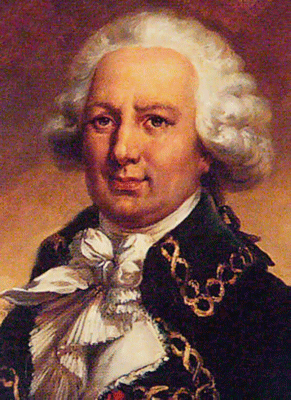News about maps
Digital cartography and GPS navigation
Mapstor news
This Day in History
Travelling with mapstor.com
This Day in History
4th December, 1674 Marquette founded the first European settlement
19th November, 1875 was born Hiram Bingham
18th November, 1832 was born Nils Adolf Erik Nordenskiöld
14th November, 1963 the island Surtsey was founded
11th November, 1729 was born Louis Antoine comte de Bougainville
11th November, 1729 was born French explorer Louis Antoine de Bougainville
 On the 11th of November 1729 was born Louis Antoine de Bougainville, an outstanding explorer who led the first French world expedition. On the map in the Solomon Islands archipelago, you can find the island, named in honor of Bougainville, as well as the Strait of the same name.
On the 11th of November 1729 was born Louis Antoine de Bougainville, an outstanding explorer who led the first French world expedition. On the map in the Solomon Islands archipelago, you can find the island, named in honor of Bougainville, as well as the Strait of the same name.
Bougainville was not a sailor by training. Louis Antoine grew up in a bourgeois family, his father was a notary. Growing up, he chose to become a lawyer and studied jurisprudence. In 1753 Bougainville changed genus of its activities and entered the military service in the squad black musketeers.
In his student years Bougainville showed remarkable mathematical abilities that allowed him to write the '23 two-volume treatise on the calculation of integrals. However, Bougainville had a good knowledge of classical literature, and even did some extensive research on ancient languages.
During the Seven Years' War, Bougainville was sent to Canada as a volunteer, first served as a captain in a dragoon regiment, and later became adjutant of General Montcalm de Saint-Veran. In 1758 he returned to France and asked for reinforcements from the government of Louis XV. Minister to whom Bougainville referred, said that "no time to engage in the stables when a house is on fire." On this refusal Louis Antoine replied that the Minister thinks like a horse. From revenge of senior and influential official Bougainville was saved by Madame de Pompadour, who at the time was the official favorite of the king and became the protector of Louis Antoine.
For military service in 1759 Bougainville was made a colonel. After France lost the Canada, he fought on the banks of the Rhine until the conclusion of the Treaty of Paris. After France lost its colonial possessions in North America, the court began to develop plans for the conquest of new lands in the tropical Pacific Ocean.
Thus, in 1763 on ships "Sphinx" and "Eagle" as a captain of the first rank Maluinskie Bougainville arrived on the island (on the map can be found in the South Atlantic, in 463 km from the coast of South America), and founded a colony. However, three years later, on the orders of King, the Islands were transferred to the Spaniards. Soon, the British occupied the area and renamed the island in the Falkland Islands (that is how they are marked on a modern map of the world).
In 1766 from Brest on the French ships "Star" and "Fuddy-Duddy " under the command of Bougainville started voyage around the globe. Officially, it was organized for scientific purposes. Therefore, it consisted of an engineer Romainville, naturalist de Commerson, astronomer Verron. In a way Bougainville spent much time on astronomical observations, measured the depth and wrote comments on navigation and made adjustments to the maps, which were at that time very inaccurate.
Travel map shows that the route passed through the Strait of Magellan and the South Seas. In 1768 explorers arrived in Tahiti, visited the Hebrides Islands, Samoa, Mauritius, New Guinea, New Brittany (now marked on the map as the islands of Bismarck). The expedition passed the Cape of Good Hope, and after two and a half years, arrived in Saint- Malo.
Results of the world expedition were of great interest to French colonialism. Bougainville as accurately as he could, marked on the map the location of the newly discovered lands.
Between 1778-1782Bougainville was involved in the liberation war of the United States as commander of the squadron. In 1780 he was a commander in chief of the French expeditionary Army. Bougainville prepared the route of the expedition to the North Pole, but this project did not find the approval in the Ministry. Since 1790 he was the commander of the fleet at Brest, and in 1792 left that position to devote himself to science. In 1795 he was elected a member of the Paris Academy of Sciences.
During the Terror Bougainville was arrested. He was released only after the fall of Robespierre. In 1799 Napoleon made him a senator, in 1804 he was awarded the title of Commander of the Legion of Honor, in 1808 - Count of the Empire.
This Day in History 11-11-2013


